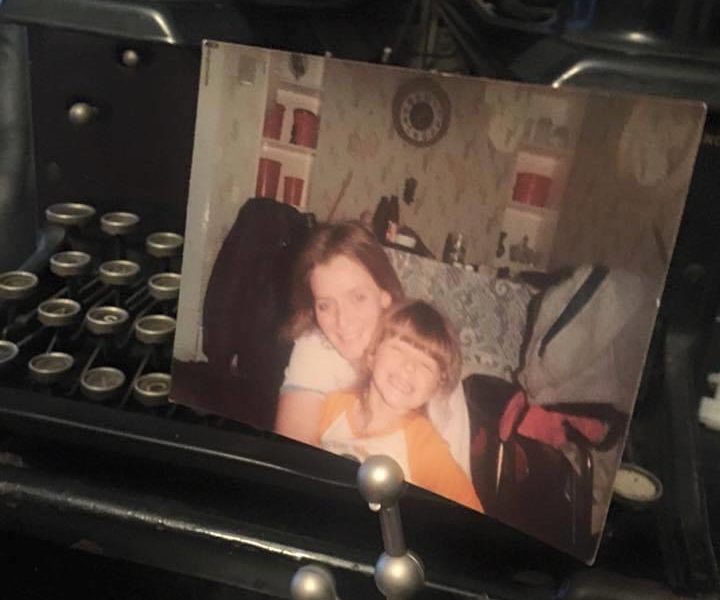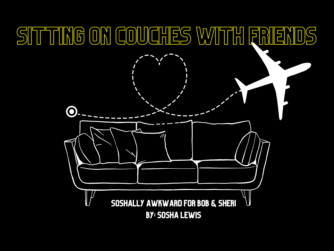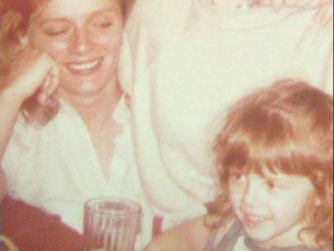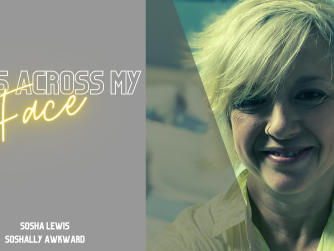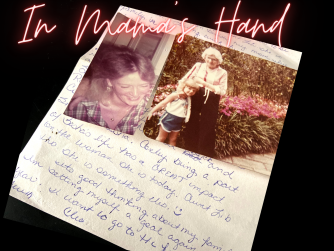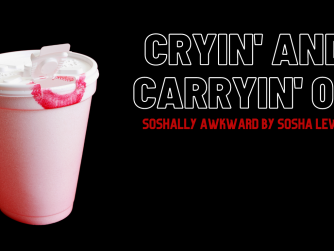Their faces were blotchy and red, a mixture of the knife-slice cold of an Appalachia winter night and the exertion of hefting boxes of wrapped presents and fixings for the kind of white-trash Christmas dinner that they would never fathom serving their own kin down our winding, unlit driveway.
I watched from the window as they knocked and then quickly backed off the steps in case our problems sprung from the doorway and clung to their scarves and mittens like a particularly contagious strand of the flu.
These raised-right church ladies meant well. Even my angst-ridden teenage mind knew that on some level. But, the shame was too overwhelming for me to deal with their good deed with any amount of grace. Their pity pelted me like a prize-fighting heavy weight.
I snatched the boxes out of their hands and dropped them with a sad thud right inside the door. My much younger brother and sister ran to the boxes and gleefully grabbed the gifts and the candy. I told them that we weren’t keeping them, but they ignored me and shoved chocolate Santas in their mouths.
I threw my still-wrapped presents in the trash.
I was morbidly ashamed that the life filled with poverty, addiction and abuse that I tried desperately to keep contained within the walls of our broken down house had wormed its way out into the greater world. My drug-addicted parents were in prison and my grandmother was trying to raise three kids on minimum wage. We ate government cheese. Our lights weren’t guaranteed to buzz to life when we flipped the switch.
The weight of our moral ineptitude, our lack of scooping up even a crumb of the Americana pie was crushing the life out of our family. We were failures. I knew it. And, those church ladies damn sure knew it.
We were suffering from the choices that my parents made. We weren’t destitute and floundering because my mom had been stricken with cancer or heart disease. They were addicts – or as they were more commonly referred to when I was growing up – junkies and pillheads.
And, the stigma that surrounded our family affliction was as devastating as the demons that they injected into their veins and snorted up their noses.
When talking to Dr. Heather Manos, a substance abuse disorder doctor at Novant Health Addiction Recovery & Counseling and Bridget Bridgman, Senior Director of Medication Safety and Outcomes for Novant Health, medical professionals who are passionate about helping those who suffer from substance use disorders, about International Overdose Awareness Day (August 31, 2020), a global event dedicated to bring awareness of overdose and to end the stigma of drug-related death, I made a crack about how people don’t run 5ks to raise awareness about overdoses.
As soon as the words left my mouth, I worried that they would not appreciate my somewhat dark humor, but much to my relief Dr. Manos shot right back, “Yeah, no one brings a casserole when your kid ODs.”
I knew that I was not talking to morally superior medical professionals, but two people who shared my passion in humanizing the disease of addiction.
In the 1980s, Nancy Regan’s ubiquitous “Just Say No” campaign settled into the marrow of American citizens. This simple phrase taught generations that it was easy to turn away from the type of life my parents lead – if you just had enough willpower.
However, substance abuse can’t be wrapped in a quick quip or tagline. Addiction is nuanced. They’re are many layers to it. However, as Bridgman reminds us there is one component to it that is very easy to understand when treating and/or interacting with those fighting this disease, “We can just be kind. It boils down to basic human caring.”
Although the narrative around substance abuse disorder and overdose related deaths are still shrouded in shame and stigma, it is beginning to slowly shift. In 2016, then Surgeon General Vivek H. Murphy stated in his landmark report that addiction is a chronic illness, not a moral flaw.
However, just when there seems to be more empathy and dialogue around substance abuse, the world, and particularly the United States, has been hit with an unprecedented pandemic that is contributing to the rise in overdoses.
Suspected overdoses nationally — not all of them fatal — jumped 18 percent in March compared with last year, 29 percent in April and 42 percent in May, according to the Overdose Detection Mapping Application Program, a federal initiative that collects data from ambulance teams, hospitals and police.
Estimates suggest that each one percentage point increase in the unemployment rate translates into a 1 percent increase in suicide deaths and a more than 3 percent increase in opioid deaths, which means this virus-induced recession (caused by a necessary shutdown/slowdown) will likely cause tens of thousands of excess deaths.
And, while some may take these statistics and argue that this indicates that the business closings and at-home restrictions are doing more harm than good, that is a debate for another day.
What is not debatable is that addiction is merciless. Powerful pharmaceuticals can rewire your brain – yes, even when taken as prescribed. It is also layered. Lifestyle choices contribute to many diseases, but we don’t shrug off deaths by diabetes, cancer and heart disease – and, we certainly don’t criminalize them.
And, I get it, I get that addicts aren’t always easy to love…that the drugs can bury them alive. It took me a very long time to forgive my parents. They lied to me, stole from me. They weren’t at my high school graduation and my mother overdosed and died six weeks after I found out I was pregnant. I still have nightmares about some of the events I experienced as a child.
However, as my estranged father (because I can forgive someone and still not want them in my life) told me in a letter he wrote me from prison, no one wakes up wanting to be an addict…no one wants to destroy their life like that. So, as hard as it is, as hurtful as the memories may be, I can still extend just a morsel of grace as I try to understand what they went through.
Therefore, in honor of Overdose Awareness Day and my mama, I hope that we can all extend some kindness and empathy toward a disease that ravages everything it touches – often for generations.
If you or a loved one is suffering from substance abuse of any kind, know that there are not only people like me who are passionate about fighting stigma through storytelling, but loving, capable professionals like Dr. Manos and Bridget Bridgman who are here to help you. You do not have to live in shame.
To learn more about opioid addiction recovery services in the Charlotte area click here.

